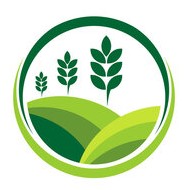Proper water management is crucial in landscaping to ensure the health and vitality of plants, as well as the overall aesthetic appeal of the outdoor space. By understanding the role of water in landscaping and implementing efficient irrigation systems, rainwater harvesting techniques, and proper drainage systems, homeowners and landscapers can conserve water, promote plant growth, and prevent issues such as waterlogging and soil erosion. In this article, we will explore the importance of proper water management in landscaping and provide key takeaways to help you implement effective water management practices in your own outdoor space.
Key Takeaways
- Proper water management is essential for the health and vitality of plants in landscaping.
- Efficient irrigation systems, such as drip irrigation and smart controllers, can help conserve water and promote plant growth.
- Rainwater harvesting is a sustainable practice that can provide a free source of water for landscaping.
- Proper drainage systems are crucial to prevent waterlogging and soil erosion.
- Grading and sloping are important techniques to ensure proper water drainage in landscaping.
The Role of Water in Landscaping
The Importance of Water Conservation
Water conservation plays a crucial role in sustainable landscaping practices. By implementing efficient irrigation systems and adopting water-saving techniques, we can minimize water wastage and preserve this valuable resource. Drought-resistant landscaping is particularly important in arid regions, where water scarcity is a significant concern. These systems not only help conserve water resources but also contribute to sustainable agriculture and thriving ecosystems.
The Impact of Water on Plant Health
Water is essential for plant development and survival. Different types of water, such as rainwater, groundwater, and tap water, affect plant health uniquely. Rainwater, for example, is often preferred by plants due to its natural composition and lack of chemicals. On the other hand, tap water may contain chlorine and other additives that can be harmful to plants if used excessively. Groundwater, which is obtained from wells, can vary in quality depending on the location. It is important to consider the source and quality of water when watering plants to ensure their optimal health and growth.
Watering Techniques for Different Landscaping Features
When it comes to watering different landscaping features, it’s important to consider the specific needs of each plant and the surrounding environment. Here are some tips to help you water efficiently:
- Adjust watering frequency: Some plants require more frequent watering, while others can tolerate drier conditions. Adjust your watering schedule accordingly.
- Water deeply: Instead of frequent shallow watering, water deeply to encourage deep root growth and drought tolerance.
- Mulch: Apply a layer of mulch around plants to help retain moisture and reduce evaporation.
- Avoid overhead watering: Watering plants from above can lead to water waste and increase the risk of disease. Use drip irrigation or a soaker hose instead.
Remember, proper watering techniques are essential for maintaining a healthy and thriving landscape.
Efficient Irrigation Systems
Benefits of Drip Irrigation
Drip irrigation offers a multitude of benefits for gardeners looking to maximize efficiency and promote healthy plant growth. At South Valley Landscaping, we’re committed to providing the best irrigation solutions for our clients. Here are some key advantages of using drip irrigation:
- Water Efficiency: Drip irrigation delivers water directly to the roots of plants, minimizing water waste through evaporation and runoff.
- Reduced Weed Growth: By targeting water only to the plants, drip irrigation helps reduce weed growth, as weeds are less likely to receive water.
- Prevents Soil Erosion: The slow and steady flow of water in drip irrigation prevents soil erosion, keeping the soil in place and protecting the landscape.
- Promotes Plant Health: Drip irrigation ensures that plants receive a consistent and controlled water supply, promoting healthier root development and overall plant health.
Implementing a drip irrigation system can greatly enhance the efficiency and effectiveness of your landscaping efforts. Contact us today to learn more!
Smart Irrigation Controllers for Water Efficiency
Smart irrigation controllers are an essential tool for achieving water efficiency in landscaping. These controllers use advanced technology to monitor and adjust watering schedules based on real-time weather data, soil moisture levels, and plant water needs. By using smart irrigation controllers, landscapers can ensure that plants receive the right amount of water at the right time, reducing water waste and promoting healthier plant growth.
One of the key benefits of smart irrigation controllers is their ability to save water. Studies have shown that these controllers can reduce water usage by up to 50% compared to traditional irrigation systems. This not only helps conserve water resources but also lowers water bills for homeowners and businesses.
In addition to water savings, smart irrigation controllers offer convenience and flexibility. They can be easily programmed and controlled remotely through smartphone apps, allowing landscapers to adjust watering schedules on the go. This is especially useful during periods of drought or when weather conditions change suddenly.
To maximize the benefits of smart irrigation controllers, it is important to choose the right controller for the specific landscaping needs. Factors to consider include the size of the landscape, the types of plants being irrigated, and the local climate. Consulting with a professional landscaper or irrigation specialist can help determine the most suitable controller for optimal water efficiency.
Rainwater Harvesting
Advantages of Collecting and Using Rainwater
Collecting and using rainwater has several benefits. One of the main advantages is that it allows you to reduce your water bills. With a rain barrel, you can collect rainwater from your gutter downspout and use it around your home and garden, which means spending less on your water bills. Additionally, using rainwater for irrigation can help conserve water resources and reduce the strain on municipal water supplies. It is also an environmentally friendly practice as it reduces the demand for treated water. Moreover, rainwater is naturally free of chemicals and additives, making it a healthier option for plants. By collecting and using rainwater, you can contribute to water conservation efforts and create a more sustainable landscaping system.
Methods of Rainwater Harvesting
Rainwater harvesting is a technique used to gather and store rainwater that runs off natural or man-made catchment areas such as rooftops, compounds, and open spaces. It is an effective way to conserve water and reduce reliance on external water sources. There are various methods of rainwater harvesting that can be implemented depending on the available space and requirements. Some common methods include:
-
Rain Barrels: These are containers that collect rainwater from rooftops and store it for later use. They are easy to install and can be used for watering plants or other non-potable purposes.
-
Rainwater Tanks: These are larger storage tanks that can hold a significant amount of rainwater. They are often used for irrigation purposes in larger landscapes or agricultural settings.
-
Infiltration Systems: These systems allow rainwater to seep into the ground and recharge the groundwater. They are commonly used in areas with high water table levels.
-
Green Roofs: Green roofs are designed to absorb rainwater and reduce stormwater runoff. They consist of a waterproofing membrane, a drainage layer, and a layer of vegetation.
Rainwater harvesting provides numerous benefits, including reducing water bills, preventing soil erosion, and promoting sustainable water management.
Proper Drainage Systems
Preventing Waterlogging and Soil Erosion
Install Retaining Walls: Retaining walls are effective in preventing soil erosion and managing water runoff on sloped areas of your garden. They help to…
Importance of Grading and Sloping
Preventing waterlogging and soil erosion is crucial for maintaining the health and stability of the landscaping. Proper grading and sloping ensure efficient water flow and distribution, reducing the risk of water accumulation and erosion. It’s important to consider the natural topography of the land and implement suitable grading and sloping techniques to achieve optimal drainage.
- Implement a table for presenting structured, quantitative data. Ensure it’s succinct and formatted correctly in Markdown.
- Use a bulleted or numbered list for less structured content, like steps, qualitative points, or a series of related items.
Conclusion
In conclusion, proper water management is crucial for maintaining a healthy and vibrant landscape. By implementing effective strategies such as irrigation systems and rainwater harvesting, we can ensure that our landscapes receive the right amount of water while minimizing waste. Additionally, regular monitoring and maintenance of water usage can help prevent issues such as water runoff and soil erosion. With the growing concern for water scarcity and environmental sustainability, it is imperative that we prioritize proper water management in landscaping practices. By doing so, we can create beautiful and sustainable outdoor spaces that benefit both the environment and our communities.
Frequently Asked Questions
What is the role of water in landscaping?
Water plays a crucial role in landscaping as it is essential for the growth and survival of plants. It helps transport nutrients, maintains plant turgidity, and regulates temperature.
Why is water conservation important in landscaping?
Water conservation is important in landscaping to reduce water usage and preserve this valuable resource. It helps minimize water waste, lower utility bills, and protect the environment.
How does water impact plant health in landscaping?
Water directly affects plant health in landscaping. Insufficient water can lead to drought stress, wilting, and even plant death, while excessive water can cause root rot and other diseases.
What are some watering techniques for different landscaping features?
Different landscaping features require specific watering techniques. For example, lawns may need deep and infrequent watering, while container plants may require more frequent but lighter watering.
What are the benefits of drip irrigation?
Drip irrigation is an efficient irrigation system that delivers water directly to the plant roots, minimizing water loss due to evaporation and runoff. It promotes water conservation and reduces weed growth.
How do smart irrigation controllers promote water efficiency?
Smart irrigation controllers use weather data and soil moisture sensors to adjust watering schedules based on actual plant needs. They prevent overwatering and optimize water usage, resulting in water savings.

